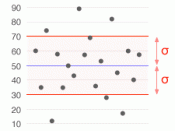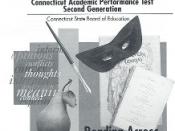Le Roux and Lipport (1993) define academic performance as the ability to study and remember facts, being able to study effectively and see how facts fit together and form larger patterns of knowledge. Academic performance also involves the ability to think for yourself in relation to facts and being able to communicate your knowledge verbally or put down on paper. Good academic performance is also liked to having good organizational skills.
Solomon (1992) states that academic performance is a term that is usually referring to a general mental capability to reason, solve problems, think abstractly, learn and understand new material, and profit from past experience. Academic performance can be measured by many different kinds of tasks. Likewise, this ability is expressed in many aspects of a person's life. Academic performance draws on a variety of mental processes, including memory, learning, perception, decision-making, thinking, and reasoning.
Most people have an intuitive notion of what academic performance is, and many words in the English Language distinguish between different levels of intellectual skill: bright, dull, smart, stupid, clever, slow, and so on.
Yet according to Smith (1995), no universally accepted definition of academic performance exists, and people continue to debate what exactly it is.
People in the general population have somewhat different conceptions of academic performance than do most experts. Lay persons and the popular press tend to emphasize cleverness, common sense, practical problem-solving ability, verbal ability, and interest in learning. In addition, many people think social competence is an important component of academic performance.
In recent years, a number of theorists have argued that standard academic achievement tests measure only a portion of the human abilities that could be considered aspects of intelligence. Other scholars believe that such tests accurately measure academic performance.
Slavin (1995) examined several dozen studies that lasted four...


